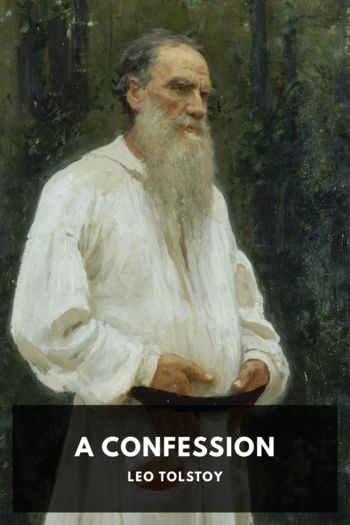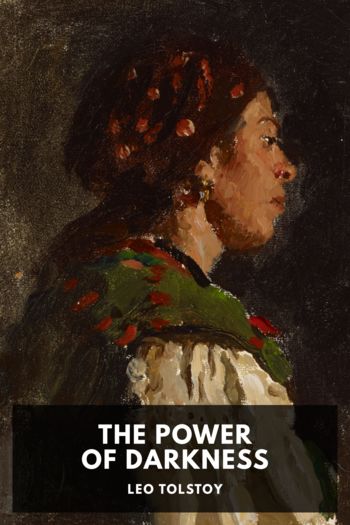Resurrection by Leo Tolstoy (best sci fi novels of all time TXT) 📕

- Author: Leo Tolstoy
Book online «Resurrection by Leo Tolstoy (best sci fi novels of all time TXT) 📕». Author Leo Tolstoy
And in the manner Katúsha Máslova lived seven years. During this time she had changed backwards and forwards once or twice and had once been to the hospital. In the seventh year of this life in the brothel, when she was twenty-six years old, happened that for which she was put in prison and for which she was now being taken to be tried, after more than three months of confinement with thieves and murderers in the stifling air of a prison.
IIIWhen Máslova, wearied out by the long walk, reached the building, accompanied by two soldiers, Prince Dmítri Ivánovitch Nekhlúdoff, who had seduced her, was still lying on his high bedstead, with a feather bed on the top of the spring mattress, in a fine, clean, well-ironed linen nightshirt, smoking a cigarette, and considering what he had to do today, and what had happened yesterday.
Recalling the evening he had spent with the Korchágins, a wealthy and aristocratic family, whose daughter everyone expected he would marry, he sighed, and, throwing away the end of his cigarette, was going to take another out of the silver case; but, changing his mind, he resolutely raised his solid frame, and, putting down his smooth, white legs, stepped into his slippers, threw his silk dressing gown over his broad shoulders, and passed into his dressing-room, walking heavily and quickly. There he carefully cleaned his teeth, many of which were filled, with tooth powder, and rinsed his mouth with scented elixir. After that he washed his hands with perfumed soap, cleaned his long nails with particular care, then, from a tap fixed to his marble washstand, he let a spray of cold water run over his face and stout neck. Having finished this part of the business, he went into a third room, where a shower bath stood ready for him. Having refreshed his full, white, muscular body, and dried it with a rough bath sheet, he put on his fine undergarments and his boots, and sat down before the glass to brush his black beard and his curly hair, that had begun to get thin above the forehead. Everything he used, everything belonging to his toilet, his linen, his clothes, boots, necktie, pin, studs, was of the best quality, very quiet, simple, durable and costly.
Nekhlúdoff dressed leisurely, and went into the dining-room. A table, which looked very imposing with its four legs carved in the shape of lions’ paws, and a huge sideboard to match, stood in the oblong room, the floor of which had been polished by three men the day before. On the table, which was covered with a fine, starched cloth, stood a silver coffeepot full of aromatic coffee, a sugar basin, a jug of fresh cream, and a bread basket filled with fresh rolls, rusks, and biscuits; and beside the plate lay the last number of the Revue des Deux Mondes, a newspaper, and several letters.
Nekhlúdoff was just going to open his letters, when a stout, middle-aged woman in mourning, a lace cap covering the widening parting of her hair, glided into the room. This was Agraphéna Petróvna, formerly lady’s maid to Nekhlúdoff’s mother. Her mistress had died quite recently in this very house, and she remained with the son as his housekeeper. Agraphéna Petróvna had spent nearly ten years, at different times, abroad with Nekhlúdoff’s mother, and had the appearance and manners of a lady. She had lived with the Nekhlúdoffs from the time she was a child, and had known Dmítri Ivánovitch at the time when he was still little Mítinka.
“Good morning, Dmítri Ivánovitch.”
“Good morning, Agraphéna Petróvna. What is it you want?” Nekhlúdoff asked.
“A letter from the princess; either from the mother or the daughter. The maid brought it some time ago, and is waiting in my room,” answered Agraphéna Petróvna, handing him the letter with a significant smile.
“All right! Directly!” said Nekhlúdoff, taking the letter and frowning as he noticed Agraphéna Petróvna’s smile.
That smile meant that the letter was from the younger Princess Korchágin, whom Agraphéna Petróvna expected him to marry. This supposition of hers annoyed Nekhlúdoff.
“Then I’ll tell her to wait?” and Agraphéna Petróvna took a crumb brush which was not in its place, put it away, and sailed out of the room.
Nekhlúdoff opened the perfumed note, and began reading it.
The note was written on a sheet of thick grey paper, with rough edges; the writing looked English. It said:—
“Having assumed the task of acting as your memory, I take the liberty of reminding you that on this the 28th day of April you have to appear at the





Comments (0)